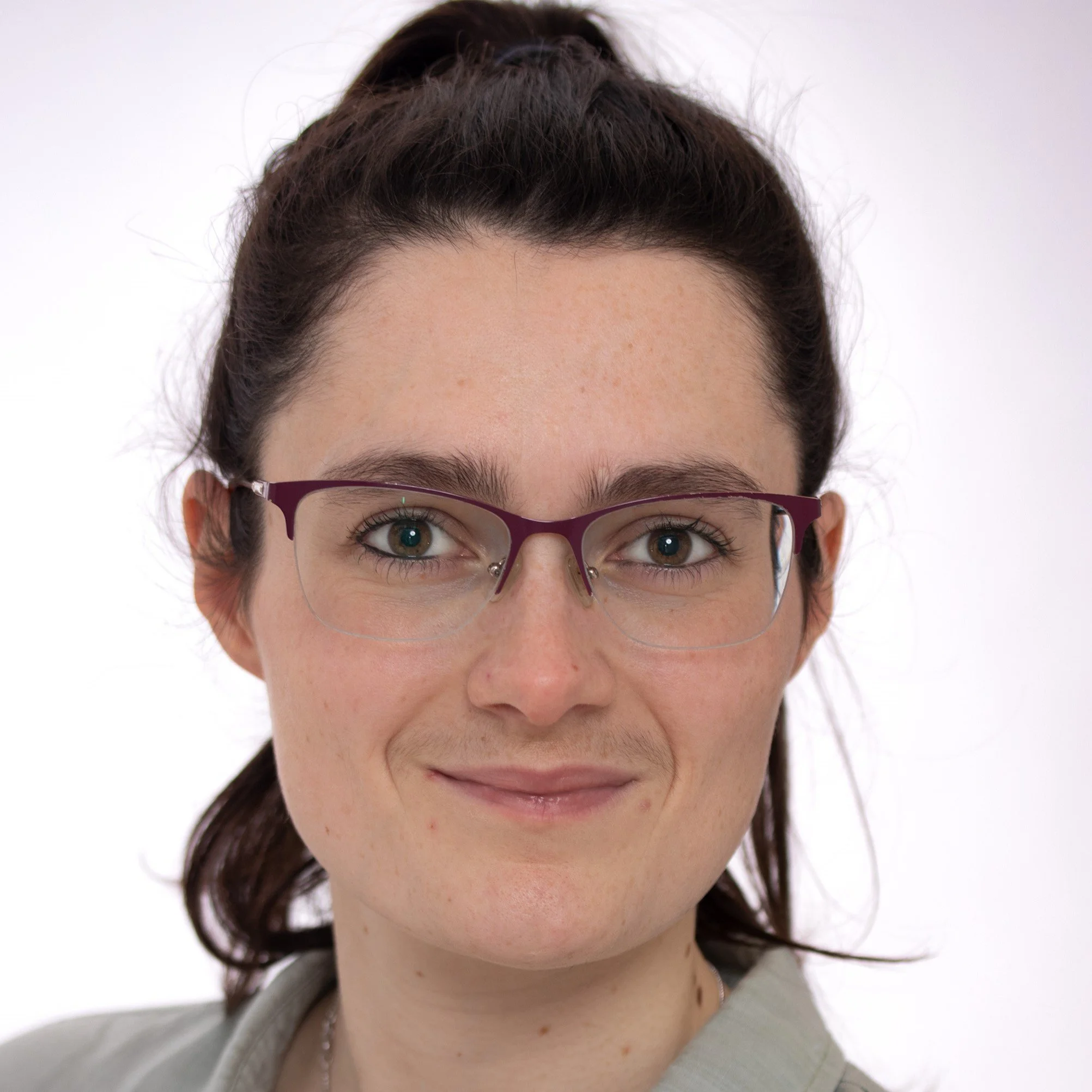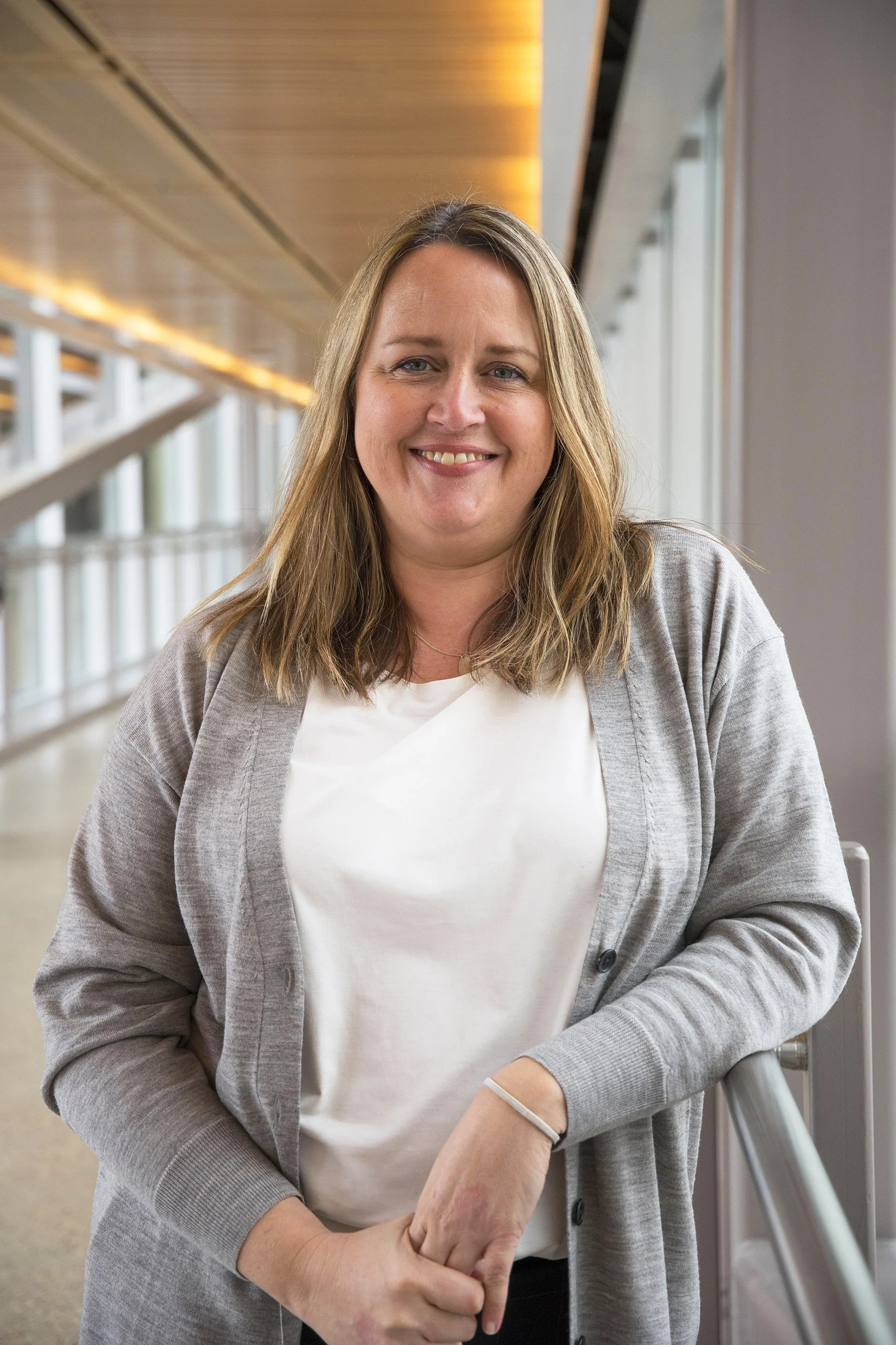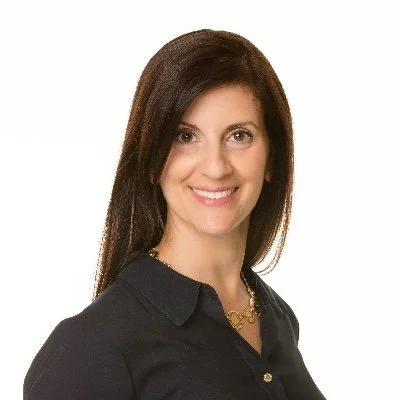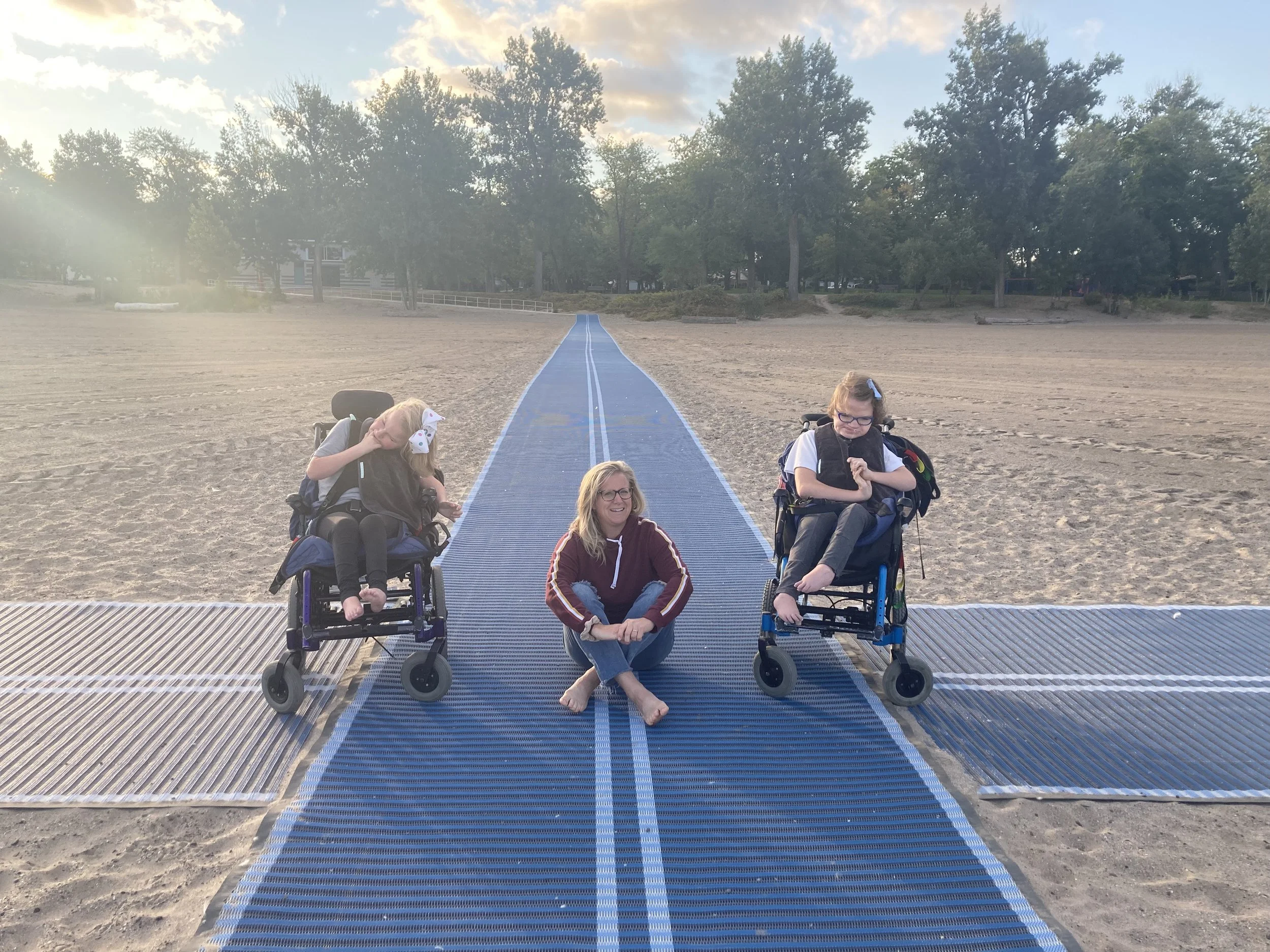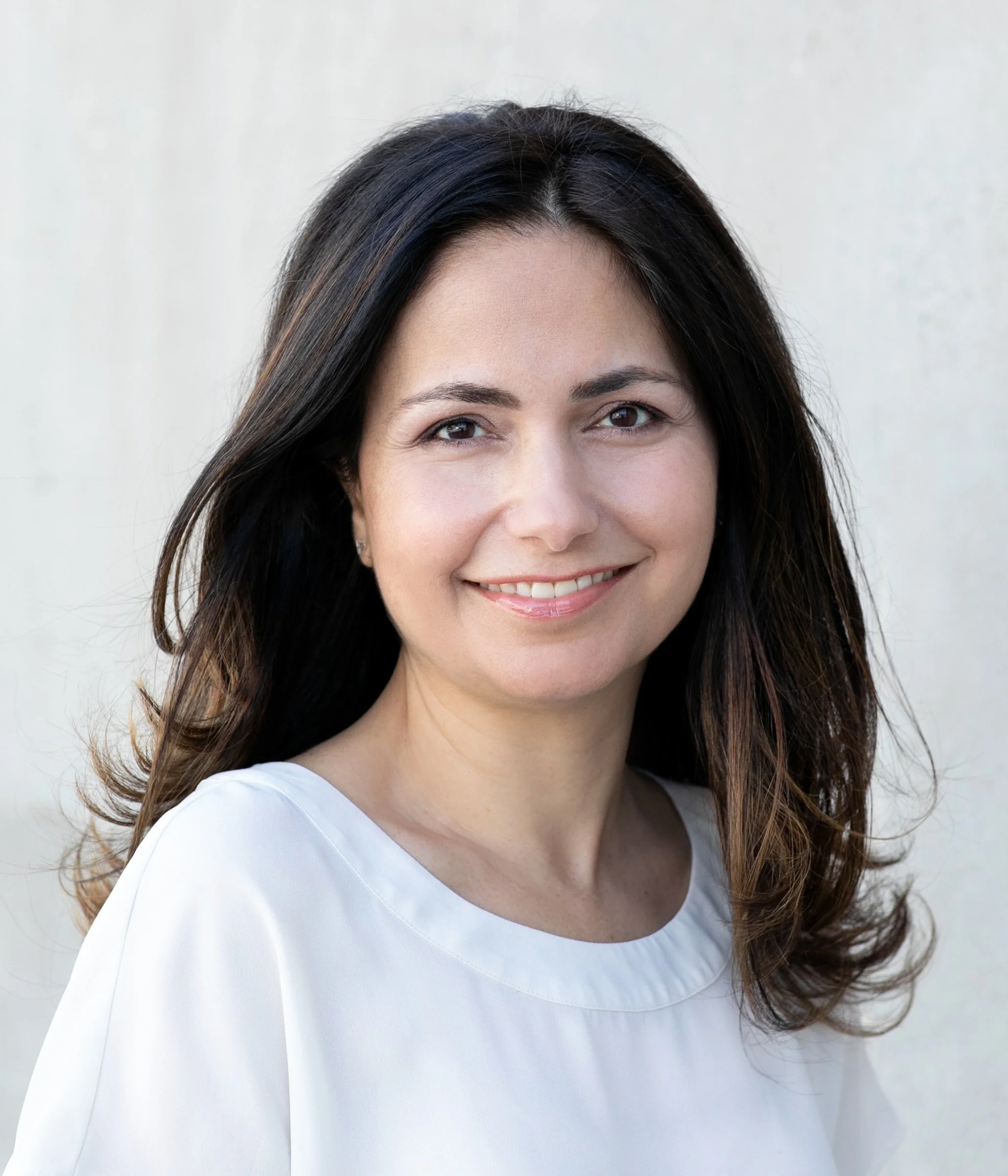Sub-Platform Leads
There are 15 sub platforms in the network, and the leads are responsible for overseeing delivery of activities in the platform.
Clinical Trial Operations and Coordinating Hub
Lead: Breanne Stewart
The CTOCH serves as a centralized national resource to support Pediatric Rare Disease Clinical Trials (PRDCTs). By bridging researchers, networks, and institutional partners, CTOCH facilitates seamless collaboration. It offers pre-funding support, including grant consultations and budget planning, and post-funding services like site and investigator identification, regulatory submissions, ethics applications, and monitoring. CTOCH reduces study start-up timelines, provides specialized expertise in advanced therapeutic trials, and promotes inclusive participation through decentralized models. With dedicated project managers, clinical trial navigators, and streamlined processes, CTOCH ensures high-quality, efficient clinical trial operations to advance pediatric rare disease research in Canada.
Expertise and Innovation
Biostatistical Methods
Co Lead: Dr. Anna Heath
Co Lead: Dr. Chris Gravel
The goal of the biostatistics sub-platform is to create a bridge between the statistical literature and the clinical experts who are aiming to develop pediatric rare disease clinical trials to ensure that the most appropriate biostatistical design for their question is identified. Overall, this team aims to identify currently available methods, develop novel methods where applicable and support their implementation in practice.
Methods and Design
Lead: Dr. Martin Offringa
Choosing the most suitable trial (primary) outcome for rare paediatric (child & youth) disease trials is challenging, yet crucial for the implementation of the of the trials’ results. This team has expertise in identifying relevant outcome domains and most suitable outcome measurement instrument for trials that are designed to make a difference. In collaboration with patients, families, researchers, healthcare providers, industry experts and regulators, we help trialists co-design trial outcomes that are valid, reliable, and feasible, and that will help key evidence users to make informed decisions.
Pharmacology, Pharmacogenomics and Translational Pharmacometrics
Michelle Wang
Lead: Dr. Tamorah Lewis
This team offers guidance on choosing the right drug doses, planning studies to understand how drugs are processed in the body, and using genetic information in study designs. This helps make studies more accurate and effective, enhancing the safety and success of treatments by tailoring them to meet patients’ specific needs.
They are working with families to create educational materials about how drugs work, how they’re processed in the body, and how their safety is checked. These resources provide easy-to-understand explanations to help patients and families learn about medications, empowering them to make informed decisions that meet their needs.
Capacity Building and Knowledge Sharing
Training and Mentorship
Co Lead: Dr. Lauren Kelly
Co Lead: Dr. Nancy Butcher
Knowledge and Synthesis Mobilization
Co Lead: Dr. Terry Klassen
Co Lead: Dr. Lisa Knisley
Knowledge mobilization is an important part of the research process that moves evidence into practical actions. For example, we collaborate with patients, families, researchers, healthcare providers, policymakers, and industry experts from the rare disease community to create helpful and trustworthy resources that make it easier for people to access information about clinical trials and treatment for rare pediatric (child & youth) diseases. We co-create these resources and regularly evaluate their impact, to make sure they are easy to use, relevant, and effective in helping people make informed decisions.
Integrated IT and Data Science
Real World Data, Registry, and Data Coordinating Centre
Co Lead: Dr. Beth Potter
Co Lead: Dr. Lawrence Richer
Co Lead: Dr. Elodie Portales-Casamar
The integrated data platform supports pediatric rare disease trials by harnessing valuable information captured in patient registries, hospitals or other clinical care and home settings. Advancing registries and other sources of real-world data helps to understand the progression of a disease and to evaluate care. Data sources may include clinical data, patient reported questionnaires, or biometric-monitoring devices (phones, watches,…). This platform’s Data Coordinating Centre also provides tools to collect additional data specific to clinical trials.
Inclusivity and Lifespan Engagement
Sex and Gender
Lead: Dr. Meng-Chuan Lai
The Sex and Gender Sub-platform works on understanding how Sex- and Gender-Based Analysis Plus (SGBA+) is being considered in the current paediatric rare disease clinical trials and ways to address the investigators' and participants’ unmet needs related to sex- and gender-related considerations. The team will also work on developing guidance and providing consultation to future trial investigators regarding SGBA+.
Transition to Adulthood
Lead: Dr. Michelle Batthish
The transition from pediatric to adult health care is an important time in the lives of patients with rare diseases. Ensuring high-quality transfer of care, from the family-centered approach of pediatric care to patient-oriented approach in adult care, is critical.
This team will be working with youth and their caregivers to describe the unique challenges that adolescents and young adults with rare diseases encounter when participating in clinical trials and navigating the transition to adult care. They will also provide consultation resources for industry, government, and researchers for increasing the participation and retention of adolescents and young adults with rare diseases in clinical trials.
Equity, Diversity, Inclusivity, and Indigeneity (EDI+I)
Co-Lead: Dr. Ashish Marwaha
Co-Lead: Dr. Malcolm King
The Equity, Diversity, Inclusivity, and Indigeneity (EDI+I) Sub-Platform, co-led by Dr. Ashish Marwaha and Dr.Malcolm King, aims to remove barriers and enhance access to clinical trials for rare diseases, focusing on underrepresented groups. Key objectives include identifying obstacles faced by equity-deserving groups, creating travel funds for participants, providing translation services, and fostering culturally safe environments. We specifically have initiatives to promote Indigenous participation, offer EDI+I training, and measure diversity within the consortium. We want to support researchers with guidance on inclusive practices and ensure demographic data collection that reflects diverse populations. The overall goal is to improve equitable access to rare disease clinical trials.
Patient and Family Engagement
Co Lead: Dr. Andrea Cross
Co Lead: Sara Pot
Co Lead: Alicia Hilderley
Patient and family engagement is a priority throughout the RareKids-CAN Network. This team helps to foster collaboration and meaningful engagement between researchers, patients, and their families to ensure the sub platforms and the network address real-world needs and priorities. In addition to serving as members on the network’s sub platforms, levels of engagement can range from a short consult with a research study to a long-term partnership on a research team. Creating capacity, promoting community, and supporting meaningful patient and family engagement are priorities of this sub platform, driven by both professional interest and personal, lived experience.
Regulatory Affairs and Strategic Partnerships
Health Canada Relations and Advocacy
Lead: Dr. Charlotte Moore-Hepburn
Our team collaborates with clinical trialists, regulatory experts, and patient and family partners from across the country to advocate for reforms to Canada’s Food and Drug Act. Current regulatory barriers make launching pediatric clinical trials costly and complex. This compromises the Canada’s pediatric clinical trial ecosystem. Health Canda’s outdated regulatory infrastructure also compromises access to innovative, time-sensitive treatments. Our ultimate goal is to align Canada’s regulatory framework with international best practices, ensuring children and families benefit from clinical trials in a more efficient and timely manner.
Sustainability and Business Development
Lead: Dr. Thierry Lacaze-Masmonteil
The Sustainability and Business Development Sub-Platform ensures the long-term success of RareKids-CAN by driving financial stability and strategic growth. Key initiatives include: implementing a fee-based structure tailored for diverse stakeholders, with subsidized services for academic projects and tiered fees for industry partners; fostering partnerships to advance therapies; offering grant preparation services through CTOCH to secure funding for high-quality trials; strengthening collaborations with international research networks; streamlining investigator and site selection; and dedicating resources to engage Federal and Provincial ministries, industry partners, and funders. These strategies collectively secure RareKids-CAN’s future impact and innovation.
Health Economics, Health Technology Assessment, and Reimbursement
Co Lead: Dr. Maryam Oskoui
Co Lead: Dr. Jeff Round
We aim to optimize access to therapies for pediatric rare diseases in Canada by addressing challenges of complex decision-making processes, limited patient engagement, and gaps in evidence-based frameworks. Our first goal is to support the journey post market authorization by strengthening the Canadian capacity in evaluating and navigating access to rare disease therapies. We will build capacity among patients, families, and clinicians to effectively engage in HTA processes by training in evidence-based decision-making and developing tools and resources to empower patients and experts. Our second goal is to optimize the reimbursement framework by advancing reimbursement strategies, such as outcome-based agreements, and refining tools for measuring health-related quality of life (HRQoL).


